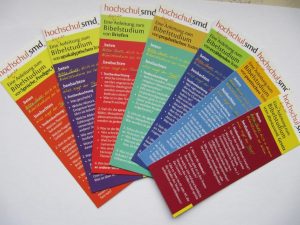by Jacob Varghese, staff worker with UESI India
My journey with Scripture Engagement goes back to when I was a student. At that time, I entered into a personal relationship with Jesus as my Lord and saviour and started to connect deeply with God’s Word. Studying doctrine helped me see the Bible as the inspired Word of God and convinced me of the need to reflect on this Word. Simultaneously, I was introduced to the discipline of having a ‘quiet time’ and sincerely started practicing it. Doing this laid a good foundation for my faith.

However, I did not realize that I was only reading & reflecting on a few passages. I applied them to my life, but before long I was getting bored of reading the Bible. I continued to read in the Bible, but only as an exercise, just like physical exercise for my body. Slowly, I started withdrawing and having my quiet time only when it was convenient. Little did I know that even during that time my God was actively working within me and shaping me.
Taking A Break. As we travel, we take journey breaks in order to be refreshed. But for me, the break on my journey was breakdown. My staff colleagues and other students in the fellowship never realized the struggle I was going through. It was during this period that I met Rev. Koichi Ottawa (then IFES Regional Secretary for East Asia). He asked me very directly: “how is your journey with God?” I was taken by surprise, but I responded truthfully. Ottawa helped me to re-start my journey with God and his Word. I realized that Scripture engagement is not a duty or mere discipline, but that it is about the Lord walking at my side and speaking to me – there is fun, there are arguments, expressions of disappointment, joy and gratefulness. Scripture became the framework for my life.
A Renewed Vision. Through the IFES global ministry of Scripture Engagement, my vision was enlarged. I began to understand more deeply that engaging with Scripture is an ongoing journey in an active relationship with our Lord God. I recognized that Scripture is not only about what God has done for me, but that it also places me in God’s grand story.
Scripture engagement is so much more than techniques – it is an invitation to continue growing in our relationship with Jesus and his world. As I understood this more deeply, I recognized my responsibility to start building up lives centred around Scripture.
Sharing this vision with individuals and building them up as vision multipliers was the next step for me. I made a conscious decision that in my personal capacity, I would focus on individuals and small group training programs and not wait for the formation of large groups. My journey continues with the vision to see young people actively engaging with God, his Word and his world.








